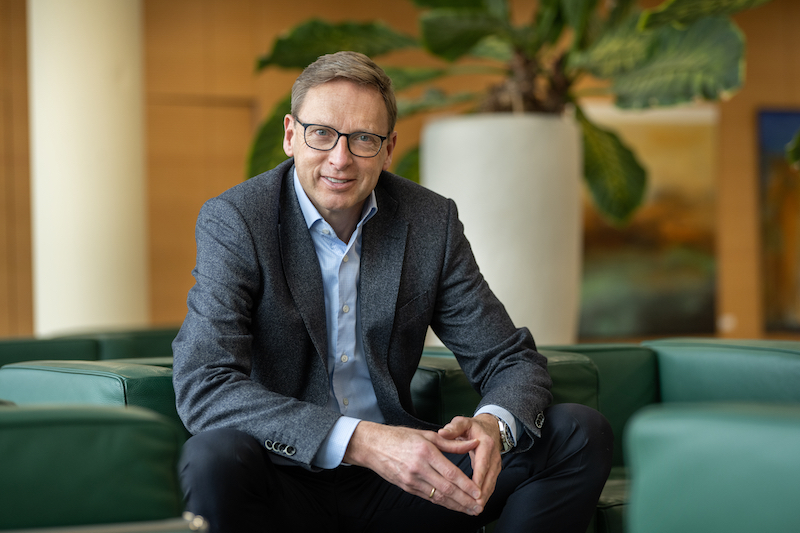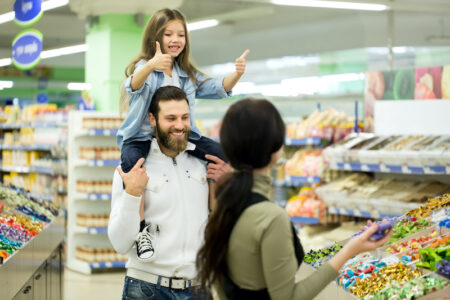Schubert: keeping ahead of the digital pack

With its heritage dating back to the 1960s, Gerhard Schubert has been at the forefront of key robotics developments within the sector, including for confectionery lines. Neill
Barston speaks exclusively to Marcel Kiessling, the company’s managing director of sales on its key innovations for Interpack.
The rapid rise of advanced automated packaging and processing systems over the past few years has paved the way for continued digital transformation within the sector that is heralding a historic new era for the industry.
As our recent reports have explored, AI-driven technologies are no longer the preserve of future science developments, and are, in fact, fast becoming reality through making considerable inroads into a wide spectrum of industrial environments, including confectionery, snacks and bakery manufacturing operations. With industries facing greater challenges from rising cost of energy, pressures on workforce availability, as well as requirements for rapid product delivery times, the creation of next generation automated lines has taken a prime spotlight as a mechanism for dealing with such combined factors impacting on global markets.
Schubert is among those operating at the forefront of engaging with technology-based solutions, as its Interpack showcase is destined to reveal, through showcasing breakthrough systems that hold key potential for the sector. Among its core highlights unveiled at the international trade fair in Dusseldorf (Hall 14 Stand D01), will be its cobots designed for operating packaging systems and the creation of advanced cartoning systems, developed as a major labour-saving innovation.
Speaking exclusively to Confectionery Production, Marcel Kiessling, managing director of sales for Schubert explained that the live demonstration of its latest high-tech offering is anticipated to hold major potential. As he enthuses, the advanced line’s appearance will form just one of many major machinery points of interest on from its stand, which returns after a six-year absence owing to the pandemic. “It’s not only us, but everyone in the industry is developing and designing new products and innovations for Interpack. It’s still the event to be at in our sector, where everyone comes together.
There’s a lot of work and energy going into preparing our booth, as well as new developments for the event. So, therefore this edition is probably more special than all those before it, as we have had such a long break since the last one, with that having been staged in 2017, and a lot has happened since then,” notes the director, who says he remains especially passionate about the company’s continued mission to make a difference within the industry in terms of its standards and technology breakthroughs.
According to Marcel, the development of cobots, created for rapid feeding of different packaging components on a line, as well as an entirely new, efficient, resource-saving feeding system for carton blanks, offers major potential.
For Interpack, this will include one such unit dedicated to processing bars, chip bags or highly reflective pouches, demonstrating the advantages of its unique AI for core confectionery and snacks markets. With the tog.519 cobot system, the company is extending packaging process automation beyond the packaging line itself. The mobile, free-standing or optionally housed robots are designed to pick up unsorted lightweight products via pick and place and processing them at up to 90 cycles per minute. Moreover, the AI-supported programming and image processing are conceived so that customers can change formats themselves in no time at all without any prior programming.
Addressing industry challenges
Speaking about wider industry challenges within packaging markets, Marcel noted that meeting present tests facing the sector with technology-led solutions was a vital for delivering a sustainable future for the wider industry. He said: “I think the two main things that we are faced with in the past couple of years is automation and sustainability. In our industry, and suppliers of machines such as ourselves and those within packaging material and product producers all need to work together closely, and early on, to come up with packaging that is recyclable, reusable or compostable, which is the requirement coming from the EU. The UK has decided to leave, but there will be more regulations coming up, so it’s a matter of common sense being applied to make improvements.
“So, we need to design and develop machines that are capable of working with different materials and support users of products to pack them in a more sustainable way. The other big thing is on automation in general. We are helping to automate processes, so it’s not only a matter of rationalisation where manual labour is substituted for automation, it’s also the lack of people available, which is what we see within the industry,” explained the director, who revealed there had been considerable progress made on expanding its own operations over the past year.
This has centred on the creation of an extended production hall and additional operating facilities at its Crailsheim headquarters in Germany, which he anticipated would make a significant positive difference for the business in meeting enhanced demand for machinery once this is complete later this autumn.

Wider event focus
As for Interpack itself, the business is set to place a spotlight on delivering sustainable packaging equipment solutions, displaying a concept study for a new generation of machines, in combination with an all-new type of transport system.
Together, as the company revealed, these elements promise to advance current packaging processes to the next level of automation, flexibility and efficiency. The innovative technologies are complemented by a wide range of new services for more environmentally compatible packaging. Among its other major topics for its latest appearance in Düsseldorf will be a focus on its new five-point Packaging Perspectives programme which includes bundled Schubert expertise, packaging development, testing facilities at the company’s technical centre and laboratory, as well as customised consulting services to ensure the best possible mix of materials, packaging and machine.
Mission Blue success
Notably, Schubert is presenting a portfolio under the banner of its Mission Blue Sustainability Initiative, focused on how it aims to set the standards for its environmental efficiency goals with tangible measures. “With Mission Blue, we started this around 18 month ago, and it is the sustainability headline for the company. We realised that we have to contribute from our end in reducing carbon emissions worldwide. So, this consists of four areas – sustainable management of the company, based on our workplaces, are they safe, attractive or provide a work/life balance, then there’s our focus on the technical side aimed at reducing co2. “For this, we are investing heavily in new buildings here, an assembly hall and offices that will be operated in a climate neutral way – and as part of that here at Crailsheim, we are installing solar panels for the new development. This will enable us to be less dependent on external power we buy,” explained the sales director, who noted its other two core pillars are based on reducing the footprint of its machines, and improving energy-efficiency. Its final programme element relates to delivery of environmentally-friendly packaging, which has been made strong inroads and noted that ‘it had been very well received by all involved’ as the company seeks to drive forward its key sustainability projects that are continuing to play an influential role within the wider market.



